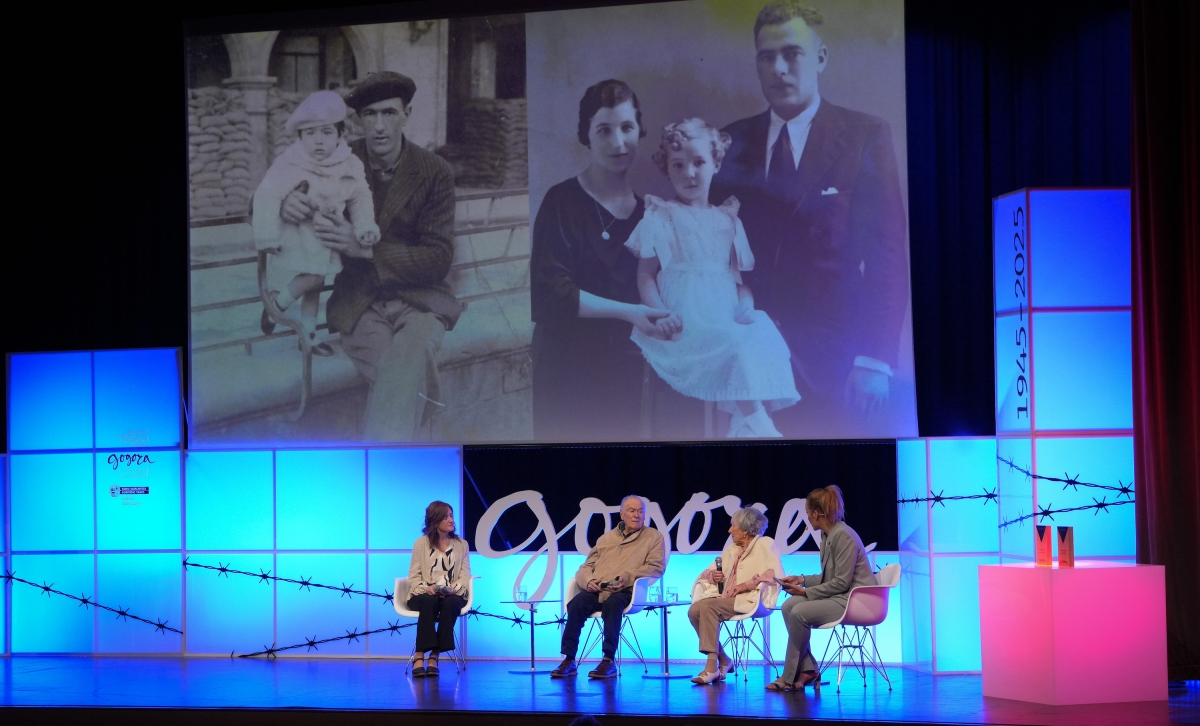253 Basques deported to Nazi concentration camps
- It is the first institutional recognition by the Basque Government to commemorate the Basque citizens who were victims of Nazism. 253 people were deported from the Basque Country between 1940 and 1945. 113 died there and many others died later as a result of the treatment they had endured, even though they had survived there.

The Government commemorates the 253 Basques who remained in the Nazi concentration camps between 1940 and 1945 in Ficoba, Irún. May 5 marks the 80th anniversary of the liberation of the Mauthausen camp by Allied troops and a commemorative event to commemorate it has been held by the Basque government. Saturday was the first institutional recognition of all deported victims.
The event was presided over by the President of the Government, Iñigo Pradales, who stressed that: "For the first time, we issued a joint confession to people deported to Nazi concentration camps." He publicly apologized for not recognizing the victims “for so long,” and also acknowledged the continued efforts of their families, historians, and associations.
The Institute for Memory, Coexistence and Human Rights has organized an event to commemorate the deportations, at the request of the families of these victims and the associations and movements that work to recover the memory of the victims. All the victims’ names can be seen in a video projected at the end of the event as a tribute and a reminder. In addition, an exhibition of deportation cases from the Bidasoa area by the Kepa Ordoki Memorial Association has been exhibited in the auditorium of the event.
Experiences of the victims
The event begins with the screening of an audiovisual piece. It explains the main keys to understanding deportation, its dimension and the context that made it not particularly popular in Basque society. The family members of the deported victims have also revealed their experiences, such as Eugenio Azurza and Lola Madariaga.
Eugenio Azurza Gabilondo is the son of José María Azurza Osategi, a member of the UGT, killed in Mauthausen on 28 October 1941. The historical documentation recovered later reveals that his father fought in the Basque Country during the War of 1936 and, although it is not known under what circumstances he arrived, he was in Catalonia at the end of the war. Thus, in February 1939, after crossing the state border, in a mass exodus, he was imprisoned in the concentration camp that opened on the beach of Argelers de la Marenda, along with another 80,000 people. The reasons for his arrest and deportation are unknown, but he did die in Mauthausen on October 28, 1941, six months after his arrival there.
Lola Madariaga Vivanco is the daughter of a living deportee, the Portuguese Pedro Madariaga Recalde. During the Civil War he joined the Basque Government Navy. At the end of the war in the Basque Country, he fled to the French State and began working as a sailor. The II. When the World War broke out, he was arrested by the Nazis on one of his trips and taken to a first concentration camp in Austria. After passing through several concentration camps – Mauthausen, Bremen, Dachau... – he was released from the Dachau concentration camp on 29 April 1945. Unable to return to the South Basque Country as a result of Francoism, he arrived in England and started working in a shipping company. This allowed him to obtain a British passport, which allowed him to visit his family regularly.
Data of the deportees
The reference research on data to date has been carried out by historians Etxahun Galparsoro and Josu Chueca and published by the Evento Institute in 2020. According to this, 253 people, 243 men and 10 women, were deported to the concentration camps. Of these, 113 died (47%) and 125 were saved (53%), and what happened to the remaining fifteen remains unclear. In addition, the case of the Mauthausen concentration camp, where two thirds (65%) of all Basques who died in deportation were killed, is particularly evident.
However, the figures should be interpreted with caution. Many of those who left the concentration camps died in the weeks and months following their release. There is also the fact that he died several years later, but in all cases as a result of illnesses dragged from the camp.







